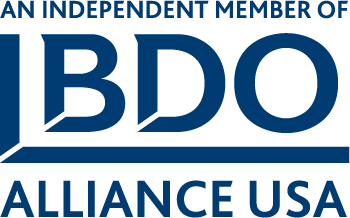Recently, John Crosslin, Co-Managing Principal, presented to the Tennessee Society of CPAs about audit issues and deficiencies in the non-profit sector. He brought up a very important issue that can taint a non-profit’s reputation and cause other very substantial issues: fraud risk.
Fraud in non-profits can reveal itself in a variety of different ways. Such examples include a college employee in the financial aid office signing up false students, an employee using a credit card for personal uses, or creating fake credit card statements for reimbursements. Significant control by the founder or executive director, difficultly in verifying certain revenue streams, lack of management oversight, unusual disbursements or reliance of volunteer boards can cause red flags. Ultimately, many of these types of occurrences point to fraud within the non-profit.
How can an auditor detect fraud? Establishing a system that requires all employees to submit expense reports that include original support for all expenses, identifying where/when the expenses occurred is vital. These expense reports must be carefully reviewed and all expenses will need approval by the designated person. It is also important to always limit employee credit cards. Additionally, assigning identification numbers to approved vendors while using pre-numbered purchase orders will also decrease the opportunity for fraud. Fraud can also appear through financial reporting. Failing to disclose significant related party transactions, misclassifying restricted donations to mislead readers, overstating program expenses, and incorrectly valuing donated assets are some examples where auditors encounter fraud.
It is important to formulate procedures to reduce fraud risk exposure. You can do so by periodically testing management fraud expenses, journal entry testing for odd items at odd times (SAS 99), test their 800 hotline, look for abnormalities in budget to actual reports, and review accrued vacation to ensure employees are taking regular vacation.
What are the effects of fraud? Non-profit organizations that experience fraud can be faced with financial damage, loss of support from donors; auditors will suffer and can lose relationships with their customers. The most extreme result can be that the organization will dissolve.
Remember that when something seems fishy while performing an audit, always trust your gut and use professional skepticism.







